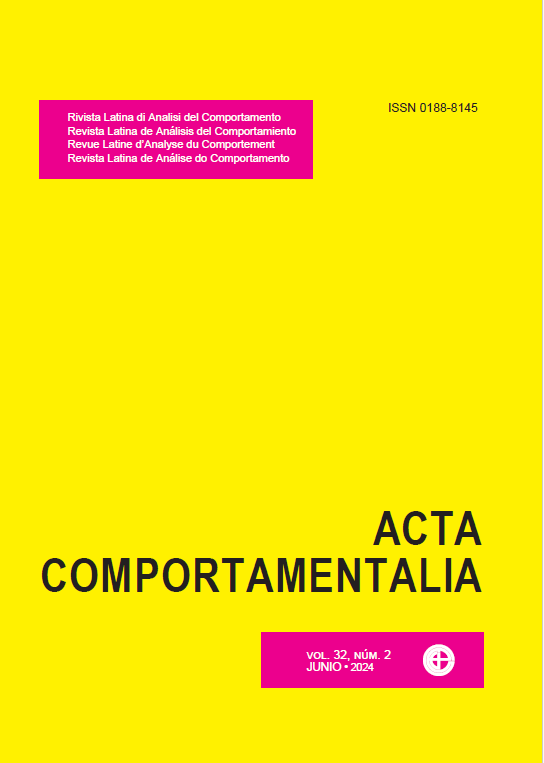Theorizing About Cultures: Necessary Dialogues Between Anthropology and Behavior Analysis
DOI:
https://doi.org/10.32870/ac.v32i2.88349Keywords:
Behavioral Analysis of Culture, ethnography, ethnology, Anthropology, cultural practicesAbstract
In many of his writings, B. F. Skinner discussed about cultures, suggesting that cultural practices were selected in a third kind of selection of behavior by its consequences. However, in theorizing about cultures, B. F. Skinner was mainly under control of analogies with natural selection and behavioral selection, not empirical data. Since the first laboratory experiment on metacontingency, some behavior analysts have been trying to establish the empirical foundation of the thesis according to which cultural practices would be selected by a third kind of behavioral selection by consequences, and some approximations with Anthropology have been suggested through the use of expressions like Behavioral Analysis of Culture, Culturo-Behavioral Science, microcultures of laboratory and so on. By means of an incursion to the anthropological literature, this article aims to raise questions regarding the way of theorizing about cultures in the laboratorial tradition of the Behavioral Analysis of Culture. In this sense, firstly We will outline the historical context which leads to the constitution of ethnography as a fundamental step in the production of anthropological knowledge. Secondly, We will discuss the premises upon which ethnography stands by and makes it so important in Anthropology, namely: that ethnographic researches must be conducted with what we would call alterity; that ethnographic researches must be a mean to reach the proper logic of the social group with whom the researcher works; and, finally, that cultures are not reducible or cuttable. Afterwards, We will speak of the intrinsic relationships between ethnography, ethnology, and Anthropology, three steps of the same research. Finally, based on the premises upon which ethnography stands by, We will demonstrate how far the strategy of research – and the concept of culture implied on it – employed in the laboratorial tradition of the Behavioral Analysis of Culture is from Anthropology. Based on those differences, We will also suggest that these laboratorial studies would be more appropriately framed into the scope of the Experimental Social Psychology, being recommendable, therefore, to abandon a language with anthropological connotations in this tradition. In this sense, yet with different interests and goals, behavioral analysts of culture and social scientists could keep in touch with one another more efficiently, with contributions to both sciences.
Downloads
Downloads
Published
How to Cite
Issue
Section
License

<a rel="license" href="http://creativecommons.org/licenses/by-nc-sa/4.0/"><img alt="Licencia de Creative Commons" style="border-width:0" src="https://i.creativecommons.org/l/by-nc-sa/4.0/88x31.png" /></a><br />Este obra está bajo una <a rel="license" href="http://creativecommons.org/licenses/by-nc-sa/4.0/">licencia de Creative Commons Reconocimiento-NoComercial-CompartirIgual 4.0 Internacional</a>.






